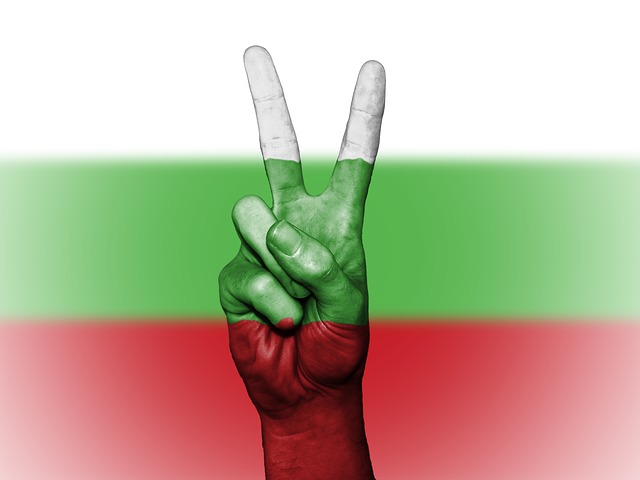Bulgarian belongs in the same big language family as many others found in Europe – Indo-European. From this bigger group, Bulgarian is a part of the Southern branch and belongs among the Slavic languages. The language itself is actually spoken by quite a large number of people in the Balkans and southeastern part of Europe.
Below, you’ll find 10 more interesting facts about the language and culture, which will make you want to take Bulgarian lessons with a private teacher right away:
Table of Contents
1. Don’t confuse Bulgarian with Bulgar
In addition to the Bulgarian language, which, as we mentioned above, belongs to the Indo-European family, there is another one with a confusingly similar name – Bulgar. Bulgar, also known as Bolğar or Bulghar, is actually an extinct language that was spoken up until around the 10th century in parts of Russia and even reached today’s Romania and Italy.
2. Some features of Bulgar survive in Bulgarian
Bulgarians do trace their heritage back to the Bulgar tribes that arrived from the Caucasus. And while the language of those tribes is dead, some features of them live on in even today’s language. For example, the first person singular pronoun (that is, I) which for most Slavic tongues is “ya”, is “az” in Bulgarian – a word of Bulgar origin.
3. Macedonian used to be Bulgarian
Up until the end of World War II, most linguists actually considered the neighbouring Macedonian language to be a part of Bulgarian. The languages are, in fact, so similar, that they could be considered simply two different dialects of one language. This dialect continuum is spoken from Bulgaria all the way through Macedonia to Northern Greece.
A dialect continuum means that while areas which are close to each other (for example, neighbouring villages) can understand each other perfectly well, then two people who are from geographically far away places (one from Bulgaria and the other from Greece), will find it a lot more difficult to communicate.
4. Together with Macedonian, the languages are somewhat unique in the Slavic group
Bulgarian and Macedonian together form the East South Slavic languages and contain several features that are unique among the other tongues in the larger Slavic group. For example, neither has any cases, there are no verb infinitives, and the general verb system is also based on very old forms of Slavic.
5. In addition to Bulgaria, the language is widely spoken in other countries as well
Although Bulgarian only has official status in Bulgaria, it’s a widely recognised minority language in a number of other countries. These include Albania, Romania, Czech Republic, Moldova, Serbia, and Ukraine. Additionally, with Bulgaria joining the EU, the language also became one of the official languages of the Union. The total number of speakers is estimated to be around 9 million.
6. Thanks to Bulgaria, the EU now has three official alphabets
The Bulgarian language is written in the Cyrillic script and with the ascension of Bulgaria to the European Union in 2007, it then also became one of the official alphabets of the Union. Previously, the EU had had two alphabets – Latin script which is used by 25 member states and the Greek alphabet.
7. Bulgaria itself is one of the oldest countries in Europe
Bulgarians consider their country to have been established in 681 AD with the emergence of the First Bulgarian Empire. This makes it one of the oldest countries in Europe today. What is even more striking, however, is that the name “Bulgaria” itself also dates back to the same beginning, making it the oldest continuously held name for any country in Europe. And Sofia, the capital, is the second oldest city in Europe.
8. Of the Slavic languages, Bulgarian was the first one written down
The Slavic languages are varied and many but, out of all of them, Bulgarian was the first language to appear in the written form. The first manuscripts to be written in the language date back to the 10th or 11th century. Of course, back then, the language itself was a lot different, what is now considered Old Bulgarian.
9. In fact, it could be considered the original Slavic language
Since the oldest manuscripts date back to a time where the Slavic languages hadn’t really diverged yet, the name used for the language itself was actually “Slavic language”. This essentially lasted all the way through the development of Old Bulgarian to Middle Bulgarian. The first ones to draw a line between “Bulgarian” and “Slavonic” were clergy members working in what is today Macedonia.
10. Bulgarians have been very important in the digital world
Some of the most groundbreaking inventions in the digital world have been made by people with Bulgarian roots. The first digital computer was made by John Vincent Atanasoff whose father was from a part of the Ottoman empire that is today Bulgaria. The first digital wristwatch was also invented by a Bulgarian. And Mark Zuckerberg, the creator of Facebook, is named after his grandfather Marko, who first emigrated to the States from Bulgaria.
—
If you’re looking for more interesting facts, you can also check out what we’ve found out about Basque and Albanian or, if this post has spiked your interest in the language, you can sign up for Bulgarian lessons with a private teacher below:

